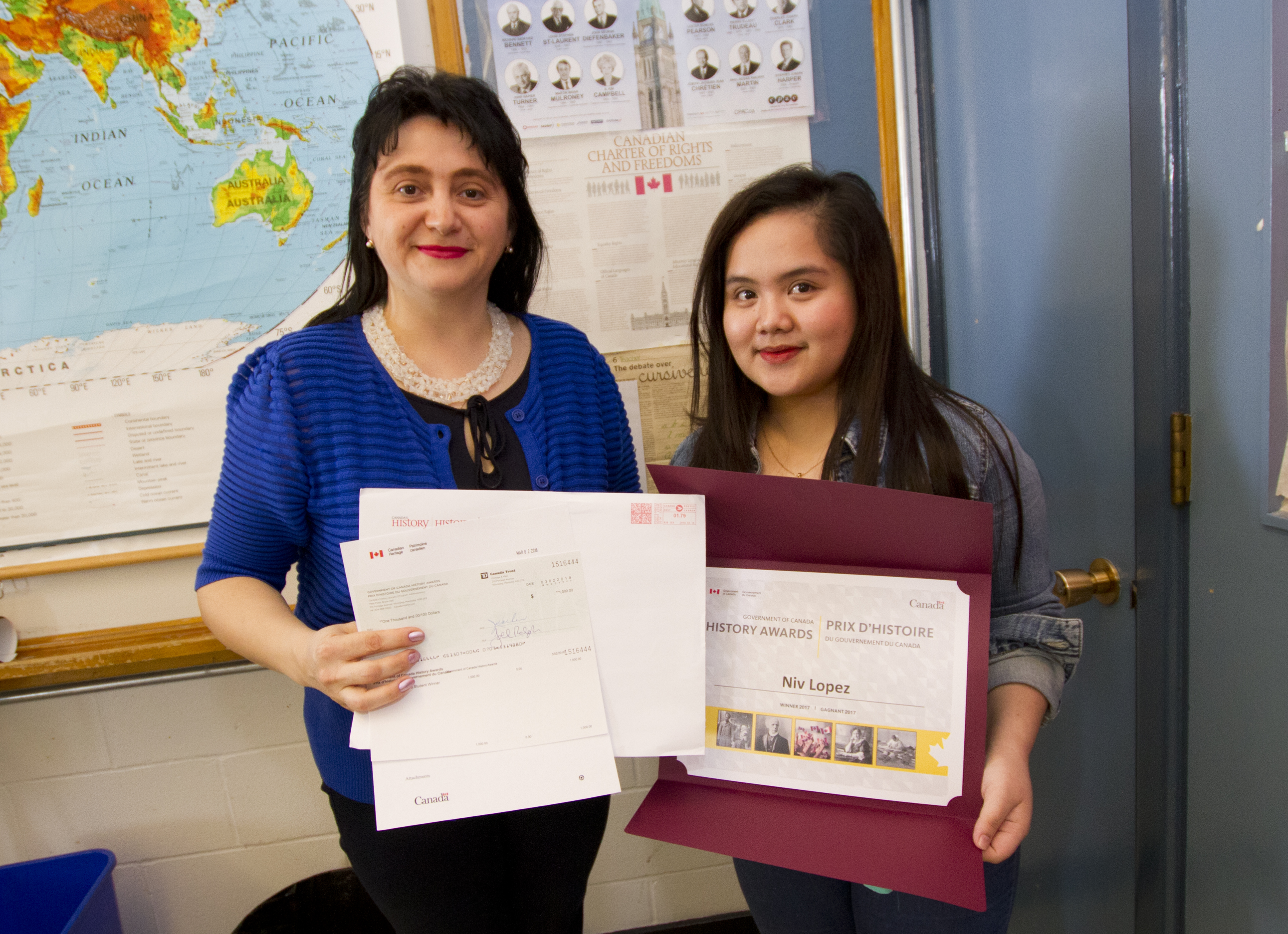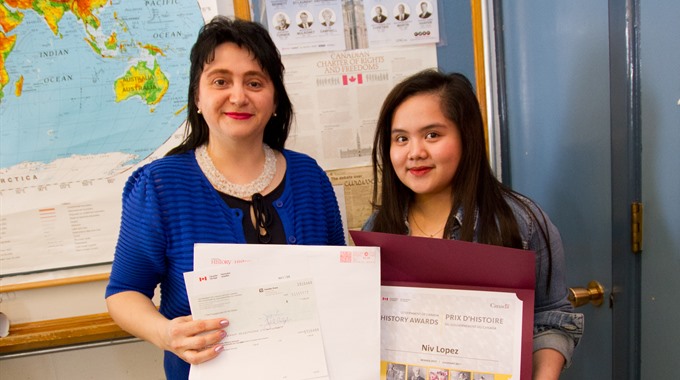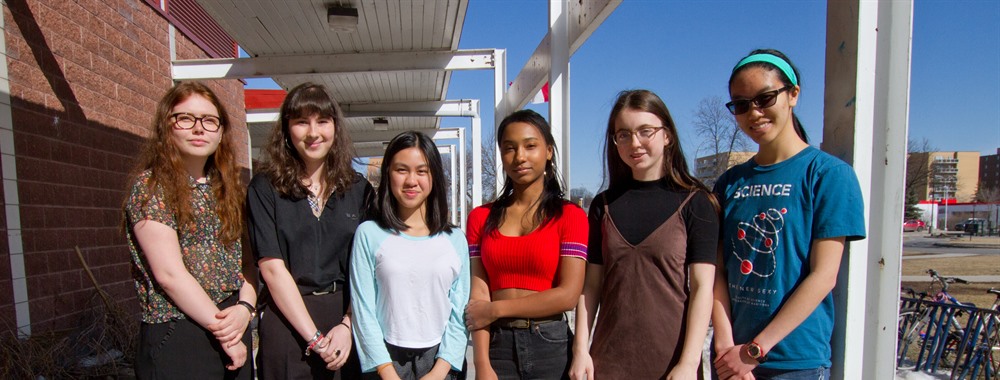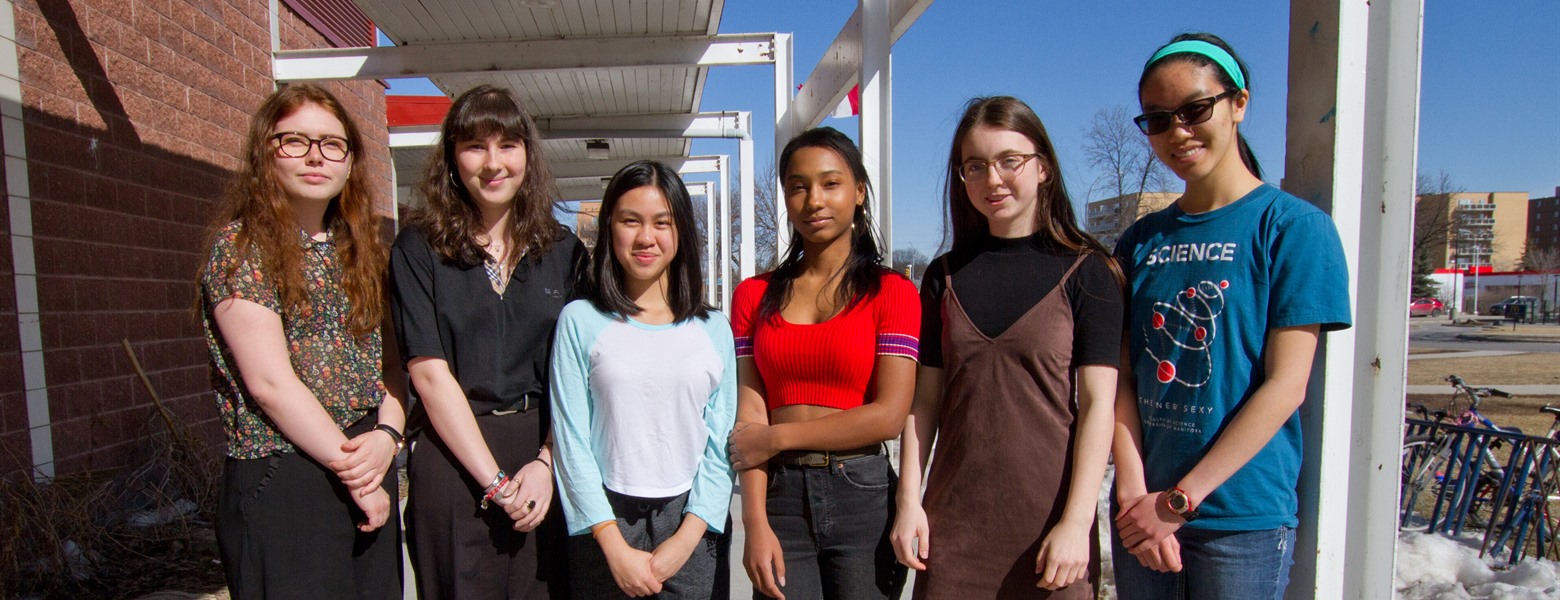Young essayists connect Canada's past, present
February 8, 2021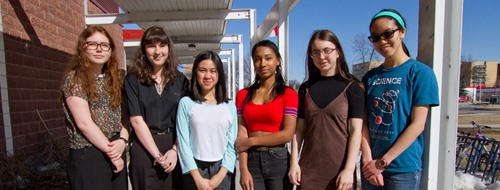
Seven WSD student essayists were major winners in the recent Government of Canada History Awards, exploring the impacts of Canada's history on current events and their personal lives.
Among the winners are six Grant Park High School students and a Sisler High School student, all in Grade 11. Students wrote the essays in class and were encouraged by their teachers to submit their work to the online contest.
Niv Lopez, of Sisler High School, chose to write about the Canadian identity.
"I was inspired to base it on personal experiences and perspective," said Niv, who is a landed immigrant from the Philippines. "Canada is a multicultural country and you get to have a proper education. It's a good opportunity."
Despite just arriving in Canada in 2014, Niv said she has been able to learn much about Canadian history through teacher Orysya Petryshyn's class.
"I've been able to learn about things like the residential schools from Ms. Petryshyn; I feel sympathetic towards people who went there. I've learned a lot and I was able to apply it."
Grant Park's Sunny Enkin Lewis wrote about the impacts of Canada's Residential School system.
"I wrote about using education as a means to reconciliation," she said. "There's still a lot of racism that goes on towards Indigenous people and there's still a lot of places in Canada where the living conditions for Indigenous people are quite low and need to be raised. An important way to improve their lives is through education, so we can know the history and build towards reconciliation."
Alison Wong examined the legacy of Expo '67 and it's impact on Canada.
"I looked at how Expo '67 shaped the identity of Canada today," she said. "That was a period of time where we were really innovating by way of technology and tried to push those boundaries. At this point in time, we are far beyond anything they could have imagined in 1967, and yet we're still pushing those boundaries today and innovating."
Katie Delay also wrote about Expo '67; she focused more on the socio-political impacts of the event.
"I looked at what their vision was at the time, and how that has evolved. At Expo '67, there was primarily a white, English speaking viewpoint presented in all of their innovations and ideas for the future. But that vision has evolved and become more multicultural today."
Julie Van examined the role Canadians had in the immigration of Southeast Asian refugees, in particular Vietnamese refugees after the Vietnam War.
"I chose to write about this because my dad was a refugee himself. They were referred to as boat people due to the conditions they migrated to these countries under," she said. "I thought it was important to raise awareness about it, because Southeast Asian refugees do have such large population here in Canada and Winnipeg. They had grave human rights abuses after the Vietnam War, so being able to recognize them has been really rewarding."
Natalya Bailey chose to write about Treaty 1 and how it continues to shape Canada.
"My main goal was to connect history to our daily lives," she said. "When we learn about the history of Canada and Treaty 1, we're always looking at the past instead of our present."
Natalya suggested bringing more speakers to discuss treaty issues, both at school and workplaces, help Canadians understand their history and importance.
Shae Newman-Macksey wrote about how the Canadian Charter of Rights and Freedoms impacted her life as a Jewish woman.
"Throughout the past, Jewish people have a history of being discriminated against and I feel very lucky to be in Canada with my family. We are accepted," she said. "I feel very safe and connected to the community here.
"When you write about something you care about, you find more connections to it and you want to work on it even more."
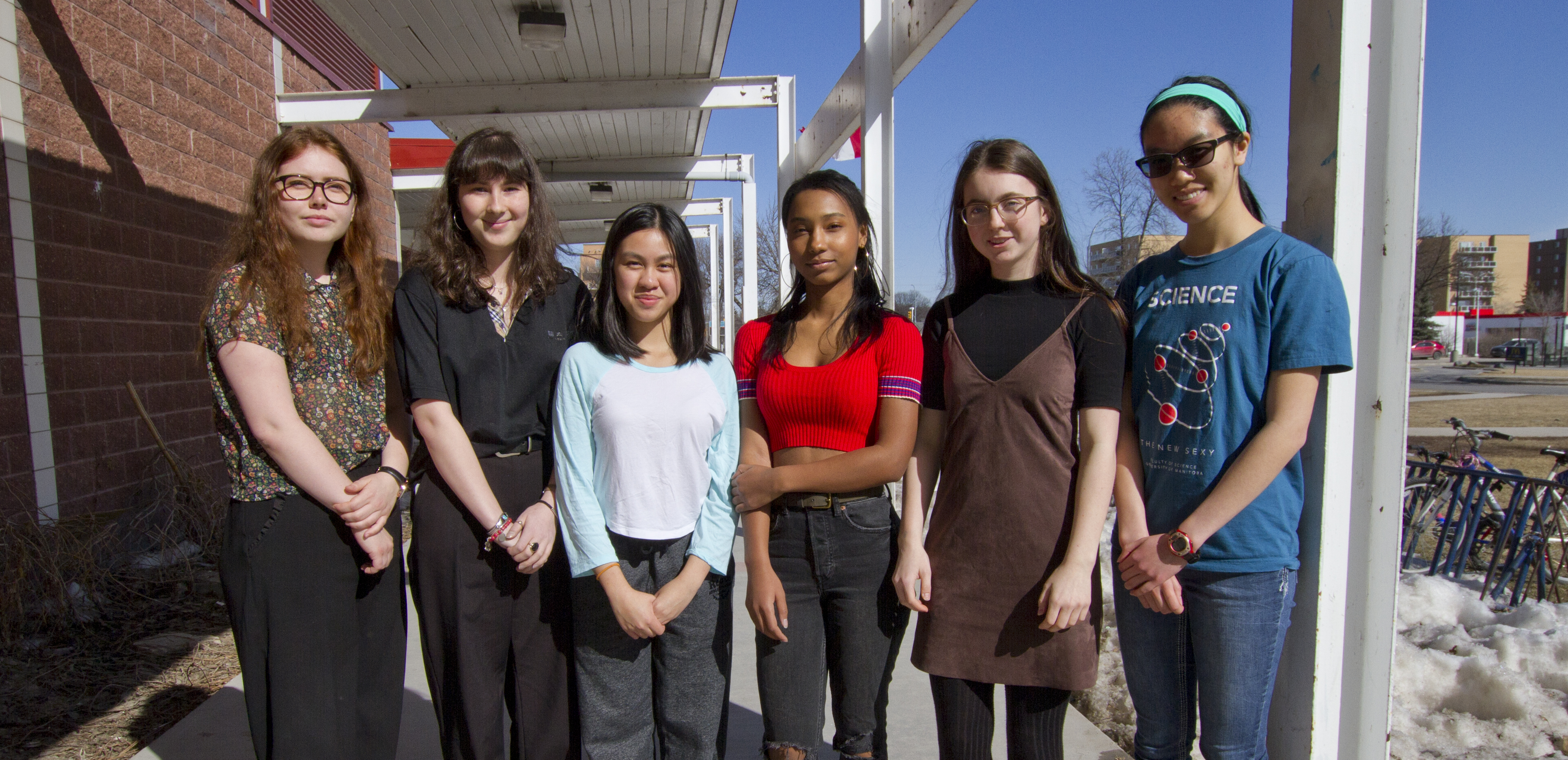
The students earned $1,000 bursaries for their winning essays. Over 800 students across Canada entered the contest, with judges awarding 172 entrants.
Ms. Petryshyn said the essay contest helped students to hone critical skills like researching and writing in different essay styles.
"I tell my students that history is alive, and it's important for them to actually experience it and witness it. It's not just the students sitting while the teacher is teaching. The students are researching, working with primary and secondary sources and learning how to write…it's a live process."
You can read the award winning entries at historyawards.ca.
